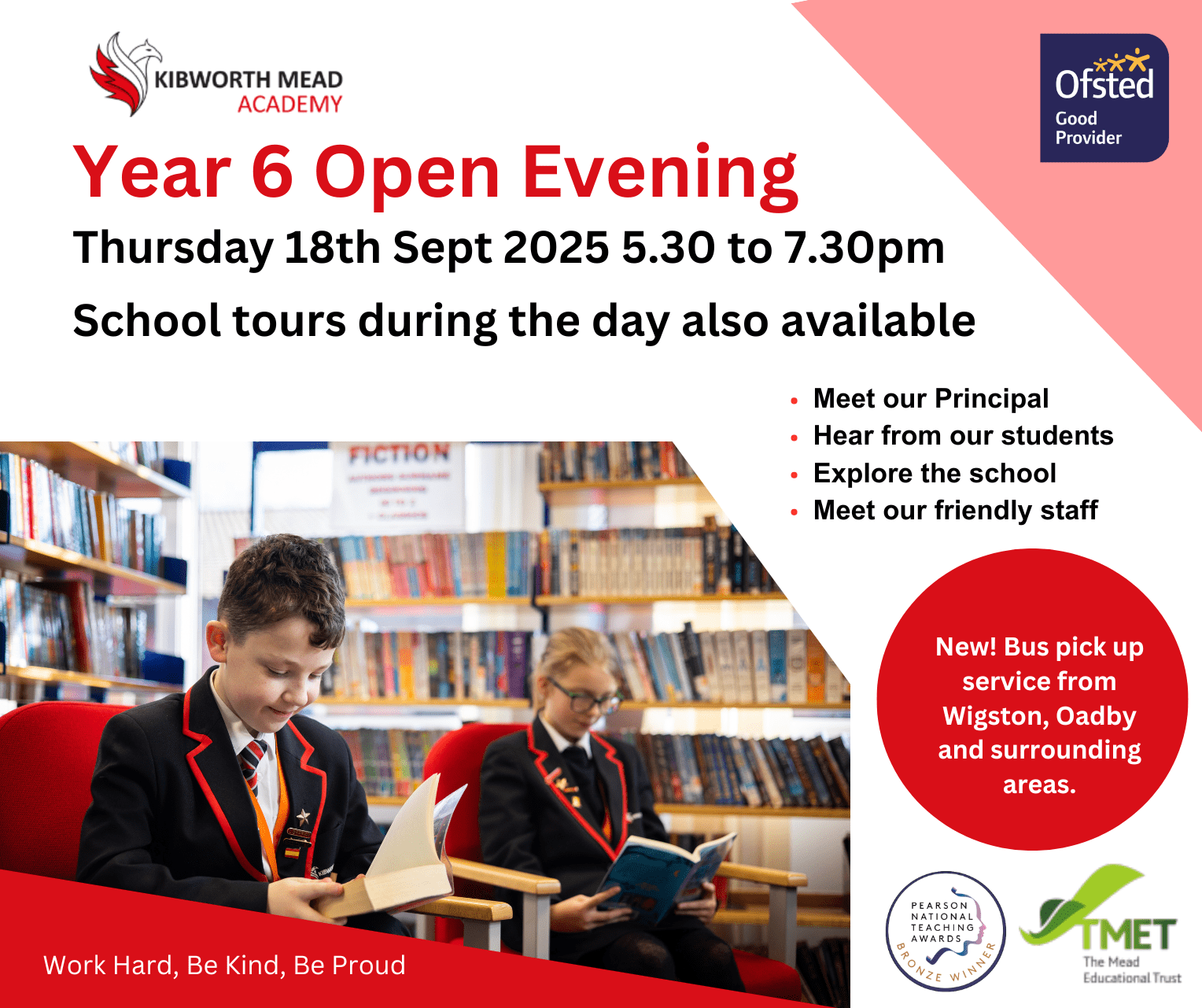The aim of Relationships and Sex Education (RSE) nationally and here at Kibworth Mead is to give young people the information they need to help them develop healthy, nurturing relationships of all kinds. It should enable them to know what these different healthy relationships look like; as well as what behaviour is unacceptable, distorted or harmful; and understand how such situations can be managed.
RSE will also help pupils understand the positive effects that good relationships have on their mental wellbeing – and the negative impacts on their mental wellbeing when relationships are not right. It will foster an understanding of the importance of self-respect and self-worth. And in addition it will help them develop resilience and character traits such as: perseverance, honesty, courage, humility, kindness, generosity, trustworthiness and a sense of justice.
It became mandatory for schools to meet the requirements of the new Relationships and Sex Education legislation from September 2020. Content is based on six broad themes. These are:
Families – with a range of topics such as types of committed relationships; the status and importance of marriage; and roles and responsibilities of parents.
Respectful Relationships, including friendships – with a range of topics such as characteristics of happy and positive friendships; bullying including sexual bullying; and stereotypes.
Online and Media – with a range of topics such as online rights, responsibilities and risks; the distorted picture of sexual behaviour in pornography; and what to do and where to get support.
Being Safe – with a range of topics such as consent; grooming; and FGM.
Intimate and Sexual Relationships, including sexual health – with a range of topics such as reproductive health and STIs; pregnancy; and contraception.
The Law – with a range of topics such as how the law relates to consent; abortion; and gender identity.
We aim to make content relevant to all, with sensitive consideration of sexual orientation and gender identity. We are also conscious that the school may have a particularly important role as a place of consistency and safety for some students where they can easily speak to trusted adults, report problems and find support.
Finally it is important to say that RSE is not about the promotion of sexual activity. Research shows that teaching young people about sex does not encourage experimentation. Indeed it shows that they are more likely to delay starting to have sex, and are more likely to protect themselves when they do. Nevertheless parents have the right to withdraw their children from the non-statutory components of RSE. (Those parts of RSE which are delivered as part of the national curriculum for Science are compulsory.) Requests for withdrawal should be put in writing using the form on Appendix 3 of the policy.
Some frequently asked questions and some misconceptions are addressed in the following link:
Relationships education, relationships and sex education (RSE) and health education: FAQs


 Work Hard, Be Kind, Be Proud
Work Hard, Be Kind, Be Proud